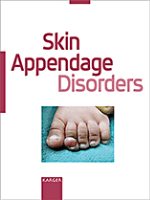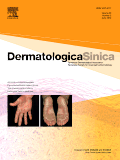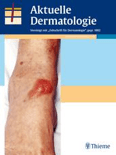
DERMATOLOGIC CLINICS
Scope & Guideline
Unveiling the Latest in Skin Science and Clinical Practice
Introduction
Aims and Scopes
- Clinical Management of Skin Conditions:
The journal publishes articles that focus on the diagnosis, management, and treatment of common and complex skin disorders, ranging from atopic dermatitis to psoriasis and various forms of dermatitis. - Patient-Centric Research and Quality of Life Assessments:
A significant emphasis is placed on understanding the patient burden associated with dermatological diseases and the impact of these conditions on the quality of life, as well as exploring patient education and self-management strategies. - Emerging Therapies and Treatment Paradigms:
DERMATOLOGIC CLINICS highlights advancements in treatment methodologies, including biologics, systemic therapies, and innovative cosmetic procedures, aiming to provide dermatologists with the latest evidence-based practices. - Diversity and Equity in Dermatology:
The journal addresses the importance of diversity, equity, and inclusion within dermatology, exploring disparities in care and outcomes for different racial and ethnic groups. - Interdisciplinary Approaches to Dermatological Issues:
The journal often integrates insights from related fields such as immunology, oncology, and public health, reflecting a holistic approach to dermatological care.
Trending and Emerging
- Atopic Dermatitis and Related Comorbidities:
A significant increase in publications focusing on atopic dermatitis, its management, and associated comorbidities indicates a growing recognition of its complexity and the need for multidisciplinary approaches. - Impact of Social Determinants on Dermatology:
Emerging themes around how social determinants of health affect dermatological outcomes and access to care are gaining prominence, highlighting the importance of addressing systemic issues within dermatology. - Teledermatology and Digital Health Innovations:
With the rise of telemedicine, there is a trend towards exploring digital health solutions and their impact on dermatological care, especially in the wake of the COVID-19 pandemic. - Diversity and Inclusion in Dermatology:
A growing focus on diversity, equity, and inclusion within dermatology practices and research is evident, addressing disparities faced by underrepresented groups in dermatological health outcomes. - Advancements in Psoriasis Treatment Strategies:
There is a notable trend towards discussing the latest advancements in psoriasis, including biologics and personalized medicine, reflecting the rapid progress in treatment options.
Declining or Waning
- Traditional Cosmetic Procedures:
There has been a noticeable decrease in articles solely focused on traditional cosmetic procedures, as the journal shifts towards more innovative and evidence-based approaches in aesthetic dermatology. - Vascular Anomalies and Related Conditions:
Research related to vascular anomalies, including hemangiomas and vascular malformations, appears to be waning, possibly as the field focuses more on broader dermatological conditions and systemic approaches. - Basic Dermatology Education for General Practitioners:
The journal seems to be moving away from articles that primarily focus on basic dermatology education for non-specialists, reflecting a trend towards more specialized and advanced topics.
Similar Journals

Dermatologic Therapy
Exploring the complexities of dermatology for better patient outcomes.Dermatologic Therapy is a leading peer-reviewed journal published by WILEY-HINDAWI that focuses on the multifaceted field of dermatology. Established in 1996 and continuing its profound impact into 2024, the journal has earned an impressive Q1 rating in Dermatology and ranks 11th out of 142 in the Scopus categorization, placing it in the 92nd percentile. With its headquarters in the United Kingdom, the journal's mission is to advance the understanding and treatment of skin diseases through the dissemination of high-quality research, reviews, and clinical information. Although not an open-access journal, it provides extensive access options to ensure that vital research reaches its audience. By leading scholarly discourse and innovation in dermatological treatments, Dermatologic Therapy serves as an essential resource for researchers, clinicians, and students dedicated to improving skin health worldwide.

BRITISH JOURNAL OF DERMATOLOGY
Pioneering research in skin health and disease.The British Journal of Dermatology, published by Oxford University Press, stands as a premier platform for advancing the field of dermatological research and clinical practice since its inception in 1892. With a strong commitment to disseminating high-quality research, this esteemed journal is currently ranked in the Q1 category for both Dermatology and Miscellaneous Medicine in 2023, reflecting its influential position in the academic landscape. As the leading journal in its field, it enjoys a robust Scopus ranking of #1 out of 142 in dermatology, placing it in the 99th percentile globally. The journal covers a wide scope of subjects pertinent to dermatology, including clinical trials, treatment innovations, and epidemiological studies, making it an essential resource for researchers, healthcare professionals, and students alike. Although it is not an open-access publication, it ensures a broad reach through institutional subscriptions, fostering knowledge exchange across the global dermatological community. Based in the heart of the United Kingdom, the British Journal of Dermatology continues to play a crucial role in shaping the future of skin health and disease management.

DERMATOLOGY
Elevating knowledge in dermatology since 1893.DERMATOLOGY, an esteemed journal published by KARGER, is a vital resource in the field of dermatological research and clinical practice. Established in 1893, with its comprehensive coverage extending to 2024, this journal has earned its place as a leading publication, holding a prestigious Q1 quartile ranking in Dermatology and ranking 15th out of 142 in the Scopus Medicine - Dermatology category, reflecting its 89th percentile standing within the discipline. The journal aims to disseminate innovative research findings, critical reviews, and clinical studies that advance the understanding of skin disorders and their treatments. While primarily available through institutional subscriptions, DERMATOLOGY remains committed to enhancing accessibility and fostering international collaboration among researchers, professionals, and students in the dermatological community. Its rigorous peer-review process guarantees the highest quality of published works, making it an essential reference for those dedicated to advancing dermatological science and improving patient care.

AUSTRALASIAN JOURNAL OF DERMATOLOGY
Connecting researchers and practitioners in dermatology.Australasian Journal of Dermatology is a leading publication in the field of dermatology, issued by Wiley since 1951, and reaching an audience of researchers, clinicians, and students interested in the latest advancements and practices in skin health. With an ISSN of 0004-8380 and an E-ISSN of 1440-0960, this journal stands out with its Q2 ranking in both Dermatology and Miscellaneous Medicine, positioning it within the top 61st percentile of its category according to Scopus. Although it does not provide Open Access options, Australasian Journal of Dermatology is committed to disseminating high-quality research that informs clinical practices and promotes scholarly dialogue. By publishing rigorous and peer-reviewed articles focused on various aspects of dermatological science, the journal plays a pivotal role in enhancing the dermatology community's understanding of skin conditions and treatments, making it an invaluable resource for professionals and students alike.

Skin Appendage Disorders
Fostering Innovation in Dermatological ResearchSkin Appendage Disorders, published by KARGER, is an esteemed academic journal focusing on the intricate realm of dermatology, particularly the structure and function of skin appendages. Established in 2016 and projected to continue through 2024, this journal has swiftly gained recognition, securing a respectable Q2 ranking in the field of Dermatology as of 2023, and achieving a Scopus rank of 76 out of 142 in the same category. With an ISSN of 2296-9195 and an E-ISSN of 2296-9160, the journal presents a platform for innovative research and clinical findings that address the multifaceted aspects of skin appendage disorders. Researchers, practitioners, and students will find significant value in its open access model, which encourages widespread dissemination of knowledge and fosters collaboration within the dermatological community. By publishing high-quality peer-reviewed articles, Skin Appendage Disorders aims to elevate the understanding of dermatological conditions and contribute to advancements in therapeutic practices, making it a vital resource for those dedicated to skin health.

Dermatologica Sinica
Elevating Dermatology: Where Research Meets Real-world ImpactDermatologica Sinica, published by Wolters Kluwer Medknow Publications, is an esteemed open-access journal in the field of dermatology that has been disseminating critical research since its inception in 2005. With an E-ISSN of 2223-330X and an ISSN of 1027-8117, this journal presents a platform for researchers, clinicians, and students to share cutting-edge findings and advancements in dermatological science. As of 2023, it proudly ranks in the Q2 category of dermatology journals and holds a notable position at rank #62 out of 142 in the Scopus Medicine - Dermatology category, placing it in the 56th percentile for impact. The journal transitioned to an open-access model in 2016, enhancing accessibility and visibility for groundbreaking studies worldwide. With a commitment to fostering innovation in the dermatological community, Dermatologica Sinica aims to advance the understanding and treatment of skin diseases while encouraging scholarly dialogue among practitioners and researchers across the globe.

CLINICAL AND EXPERIMENTAL DERMATOLOGY
Transforming Clinical Insights into Experimental Breakthroughs.CLINICAL AND EXPERIMENTAL DERMATOLOGY is a prominent journal in the field of dermatology, published by Oxford University Press. With an ISSN of 0307-6938 and an E-ISSN of 1365-2230, this journal has been a vital resource for researchers and practitioners since its inception in 1976. Recognized as a Q2 journal within the category of dermatology for 2023, it holds a respectable position, ranking #54 among 142 journals in this discipline, placing it in the 62nd percentile on Scopus. The journal is dedicated to publishing high-quality research that spans clinical and experimental aspects of dermatological science, making it an essential source of knowledge for advancing understanding and treatment of skin disorders. Although it operates on a traditional subscription model without open access options, its contributions to the field are significant, influencing both clinical practices and academic research. Researchers, clinicians, and students alike will find vital insights and contemporary themes presented in its pages, supporting ongoing education and innovation in dermatology.

ARCHIVES OF DERMATOLOGICAL RESEARCH
Elevating Standards in Skin Health ResearchArchives of Dermatological Research is a premier journal dedicated to the rapidly evolving field of dermatology, published by Springer. With a distinguished history dating back to 1971 and indexed in the top quartiles (Q1 in Dermatology and Q2 in Medicine, 2023), this journal serves as a vital resource for researchers, clinicians, and students alike. It publishes innovative findings, critical reviews, and comprehensive studies that advance our understanding of dermatological conditions and treatments. The journal's commitment to disseminating high-quality research in a field crucial to public health emphasizes the importance of advancing knowledge in skin science and therapy. For those looking to explore significant advancements in dermatology, Archives of Dermatological Research offers an invaluable platform for scholarly discourse and knowledge exchange, though it is not an Open Access journal. Based in Germany, this publication attracts a global audience and remains at the forefront of dermatological research until its anticipated converged years reaching 2024.

AKTUELLE DERMATOLOGIE
Fostering Collaboration in Dermatological Research and PracticeAKTUELLE DERMATOLOGIE is a distinguished journal in the field of Dermatology, published by GEORG THIEME VERLAG KG in Germany. With a commitment to advancing knowledge and practice in dermatological science, the journal has regularly featured research articles, reviews, and case studies since its inception in 1975 and continues to publish contributions through 2024. Despite being categorized in the lower quartile (Q4) of dermatology journals and holding a Scopus rank of #127 out of 142, it plays a pivotal role in disseminating valuable insights that support ongoing education and research in the discipline. The journal provides an essential platform for both seasoned professionals and budding researchers to share their findings, explore emerging trends, and discuss clinical practices, all while serving the needs of an evolving medical landscape. Access to its content may be restricted, but the journal remains a crucial reference for those invested in the future of dermatological research and patient care.

Dermatologie
Advancing the Science of Skin HealthDermatologie, published by SPRINGER HEIDELBERG, is a prominent journal dedicated to the advancing field of dermatology. With its ISSN 2731-7005 and E-ISSN 2731-7013, this journal has established itself as a valuable resource for researchers, professionals, and students alike. Originating in Germany, the journal focuses on disseminating innovative research from 2022 to 2024, contributing significantly to the understanding of skin health and disease management. Despite its current ranking within the Q3 category in dermatology and a Scopus rank of #88/142, it provides critical insights and advances in clinical practice, epidemiology, and therapeutic modalities. With an emphasis on open discourse, it seeks to foster collaboration among healthcare professionals and researchers, thereby enhancing the quality and accessibility of dermatological research. Engage with Dermatologie to stay at the forefront of the latest advancements in skin-related health issues.